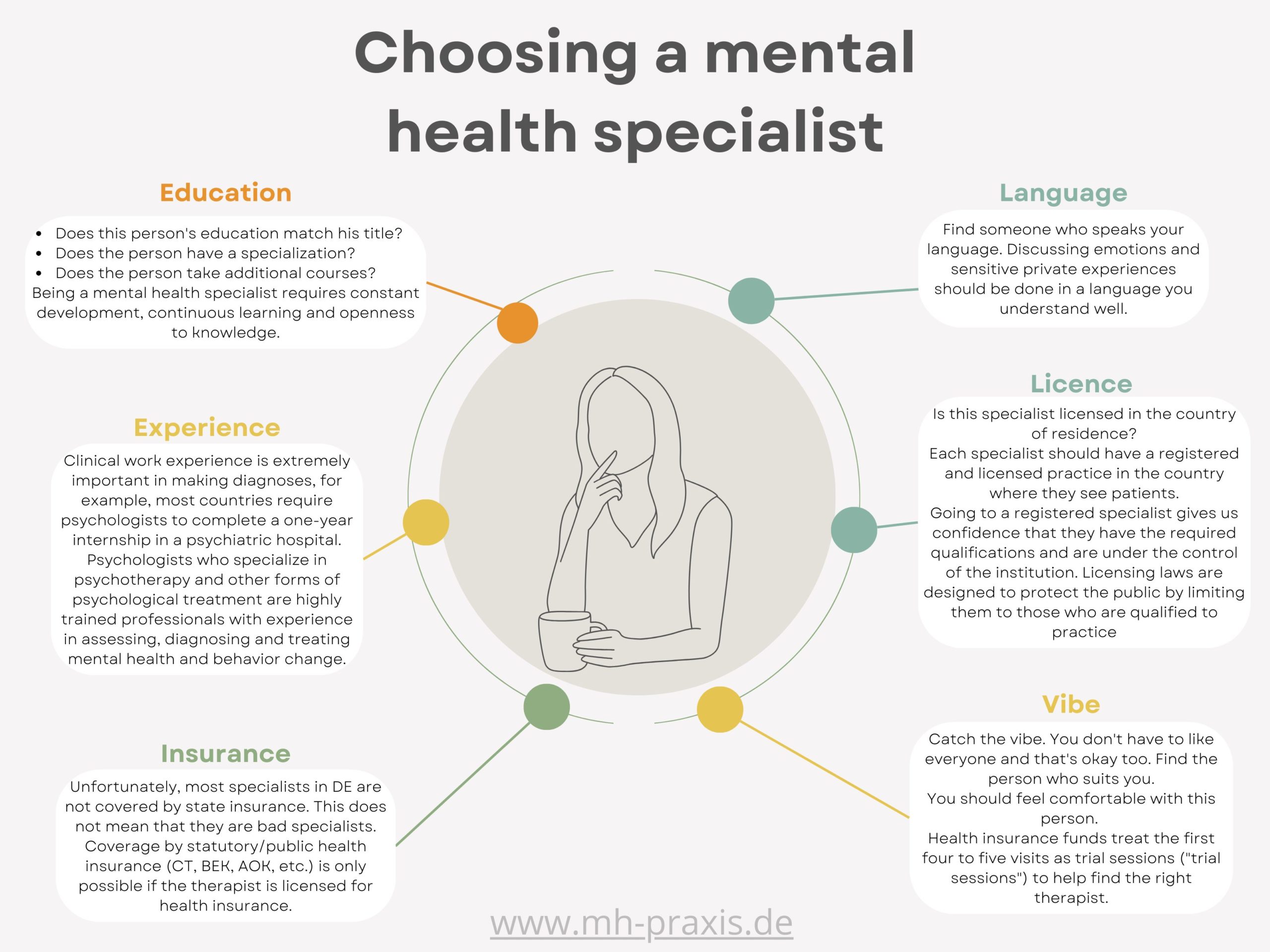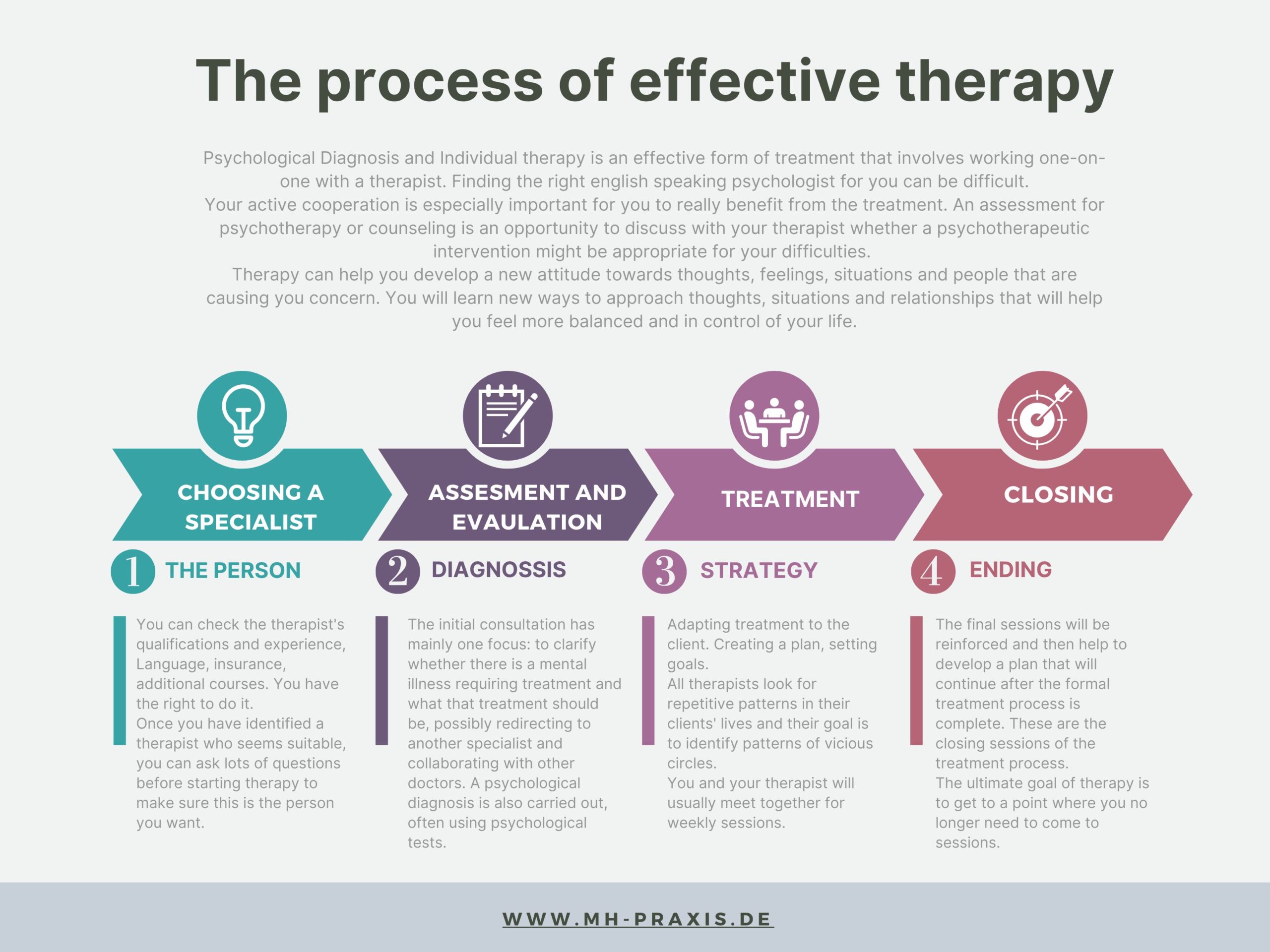Psychotherapy in Berlin: What to Expect and How to Prepare
If you're considering psychotherapy in Berlin, it's important to understand what to expect and how to prepare for your sessions. This guide will provide you with information on the different types of therapy available, what to look for in a therapist, and how to make the most of your sessions. Whether you're dealing with anxiety, depression, or other mental health issues, psychotherapy can be a valuable tool in helping you achieve greater emotional well-being.
Understand the Different Types of Psychotherapy.
Before starting psychotherapy in Berlin, it's important to understand the different types of therapy available. Some common types include cognitive-behavioral therapy, psychodynamic therapy, and humanistic therapy. Each type of therapy has its own approach and techniques, so it's important to find a therapist who specializes in the type of therapy that best fits your needs. Your therapist can help you understand the different types of therapy and recommend the best approach for your specific situation.
-Psychodynamic psychotherapy
-Psychoanalysis
-Cognitive behavioral therapy
-Interpersonal psychotherapy
-Group therapy
-Dialectical behavior therapy
-Family therapy
-Eye movement desensitization and reprocessing
-Gestalt therapy
-Person-centered therapy
-Behavior therapy
Find a Therapist Who Speaks Your Language.
If you are not a native German speaker, it may be helpful to find a therapist who speaks your language. Many therapists in Berlin are multilingual and can offer therapy in English, Spanish, French, and other languages. This can help you feel more comfortable and understood during your sessions. You can search for multilingual therapists on online directories or ask for recommendations from friends or colleagues.
Prepare for Your First Session.
Your first session with a therapist can be nerve-wracking, but it’s important to remember that the therapist is there to help you. Before your session, take some time to think about what you want to achieve from therapy and what issues you want to address. It may also be helpful to write down any questions you have for the therapist. During the session, the therapist will likely ask you questions about your background, current situation, and goals for therapy. Be honest and open with your responses, as this will help the therapist tailor their approach to your needs.
Be Open and Honest with Your Therapist.
One of the most important things to remember when starting psychotherapy is to be open and honest with your therapist. This can be difficult, especially if you are discussing sensitive or personal topics, but it is essential for the therapist to understand your situation and provide effective treatment. Remember that everything you discuss with your therapist is confidential, so you can feel safe and secure in sharing your thoughts and feelings. Trusting your therapist and being open with them can help you make progress towards your goals and improve your mental health.
Practice Self-Care Between Sessions.
Psychotherapy can be emotionally taxing, so it’s important to practice self-care between sessions. This can include activities like exercise, meditation, spending time with loved ones, or engaging in hobbies that bring you joy. It’s also important to prioritize getting enough sleep, eating well, and avoiding substances that can negatively impact your mental health. By taking care of yourself outside of therapy, you can better manage your emotions and make the most of your sessions.



